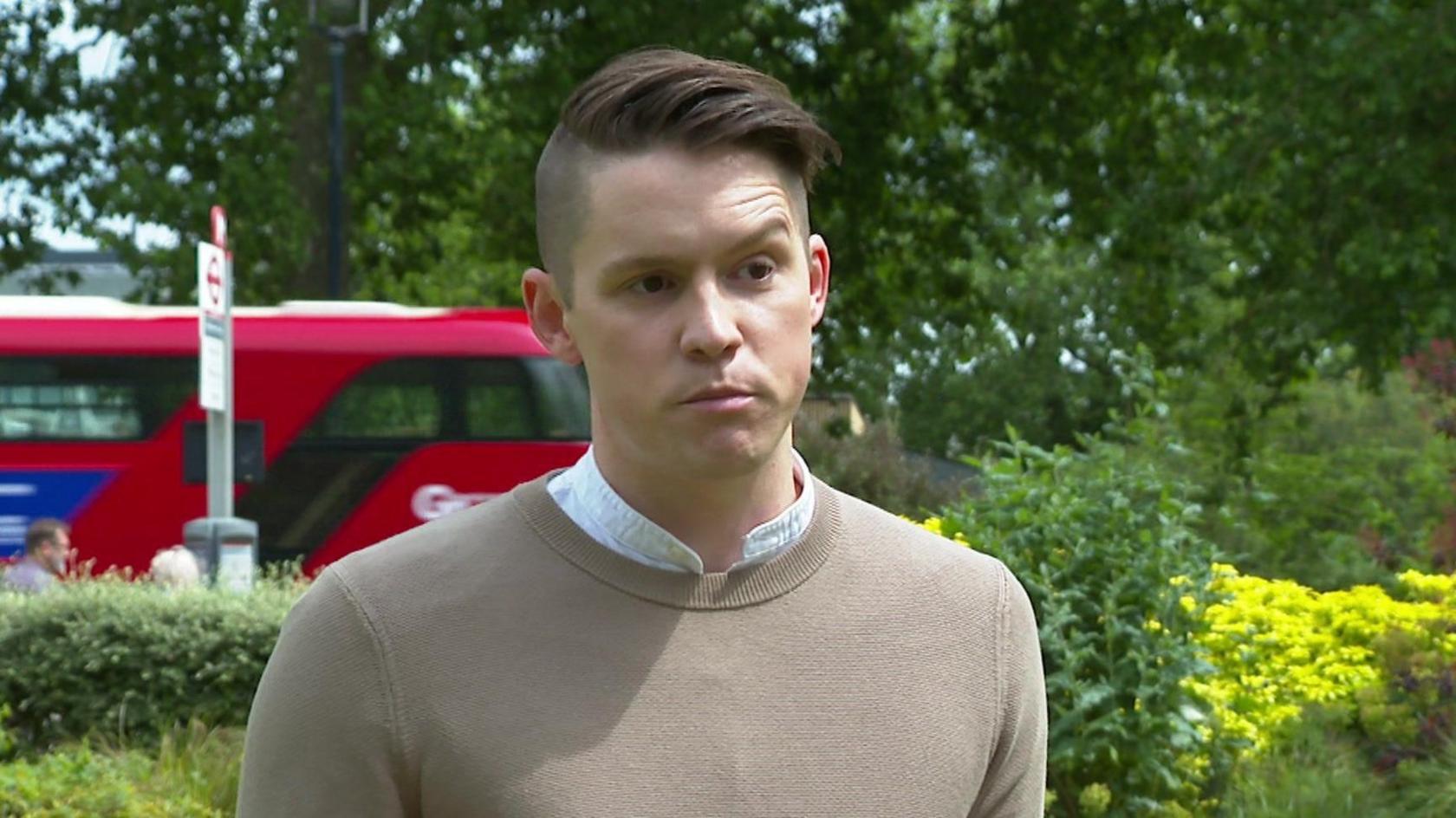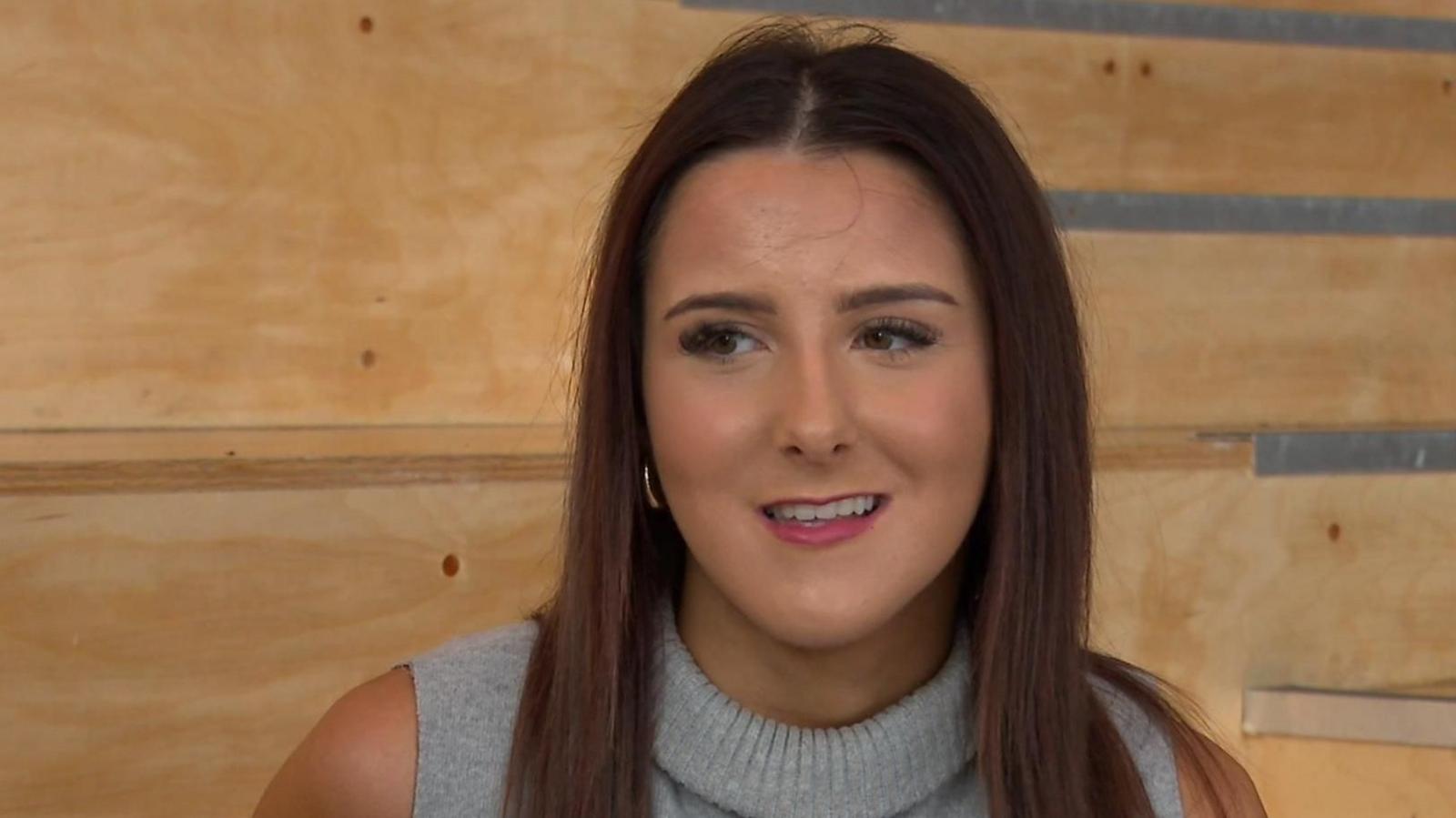Are TikToks and memes going to help win votes?

Political parties are paying a lot of money for social media advertising to boost their campaign
- Published
How much influence will TikToks and memes have on this year's general election?
Speeches, door knocks and interviews have always been a part of campaigning for political parties in the lead up to elections.
But now the battleground has extended to social media - especially to attract young people.
Parties have spent a lot of money on creating short, snappy content, but BBC research shows young people are also being targeted by misinformation.
Election poll tracker: How do the parties compare?
- Published3 July 2024
TikTok: Why young people have to delay 'adulting'
- Published1 June 2024
A simple guide to the 4 July general election
- Published4 July 2024
According to Gwenno Jones, who specialises in digital marketing, all parties are using platforms to target people of all ages.
With more than 80% of the population of the UK on social media, she believes they are able to use them to reach a majority of people.
"On average, we spend one to two hours a day online, so there is an opportunity to reach people frequently throughout the day in a way that's very familiar to them," she said.
"[You have] Facebook, Instagram, TikTok, X, and the reason they [the parties] use so many is that each one attracts an audience that's slightly different. TikTok for younger people and Facebook for people a bit older."
BBC Wales put out a request to all parties in Wales to share details of how much they are spending on their campaigns, but none responded.
According to data from Who Targets Me, external, Labour spent almost £1.4m between the first week of May and June, while the Conservatives spent about £750,000.
The site's figures suggest that the Liberal Democrats spent around £45,000, Reform around £8,000 and Plaid Cymru around £2,500.
Some platforms such as Facebook allow paid political adverts, while others, like TikTok, do not.

Owen Alun John said social media campaigns are important to political parties to gain votes
Owen Alun John worked as an advisor to the former first minister Mark Drakeford and said online campaigning can be as important, if not more important, than door-knocking.
Parties can now pay to advertise a campaign or candidate to a particular demographic, and he added: "Perhaps people at home now are already seeing some of the candidates in their areas popping up on their [internet] page, Facebook site, even though they don't follow those individuals.
"And that's because advertising in political campaigns has been quite a significant part now of campaigning for a while.
"I think to some extent, it's more important than knocking doors because you only have so many volunteers, there are only so many hours in a day."

But social media can also be misused in a campaign.
According to BBC research, some key election battlegrounds are being targeted by Artificial Intelligence and misinformation.
One video of Labour member Wes Streeting was manipulated to show him referring to Dianne Abbot as a "silly woman".

Efa Ceiri said she believes political parties are targeting young people on social media
At Cardiff University, school of journalism courses teach students about the impact of social media on shaping people's opinions - especially young people.
Third year student Beca Dalis said: "I feel like a lot of the parties are using memes not to talk about manifestos themselves, but to make jokes about other parties."
Efa Ceiri, also in the third year, said: "I think [the aim is] to attract the attention of the young people who are traditionally less interested in politics than older people.
"But I think there's two sides to the story – it's very helpful in raising awareness of the election but, to an extent, takes the importance of the whole thing away."